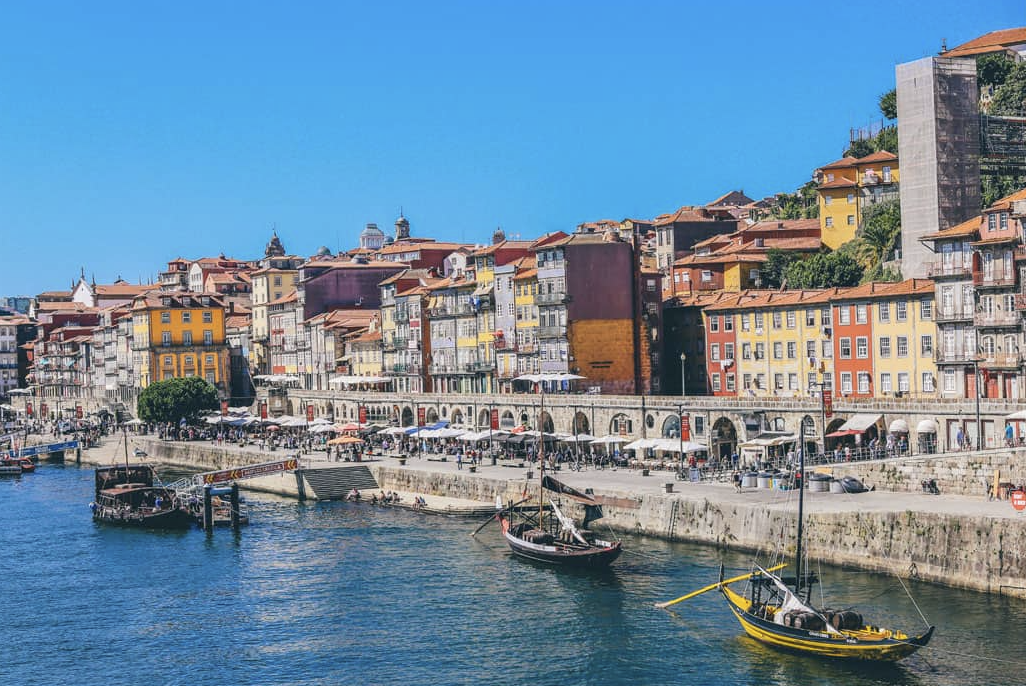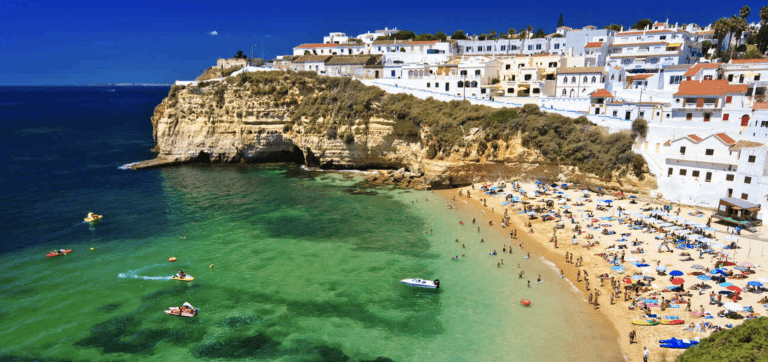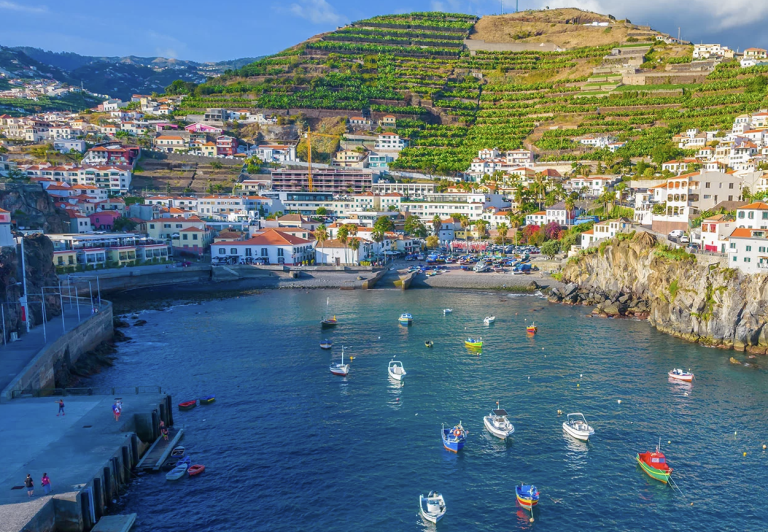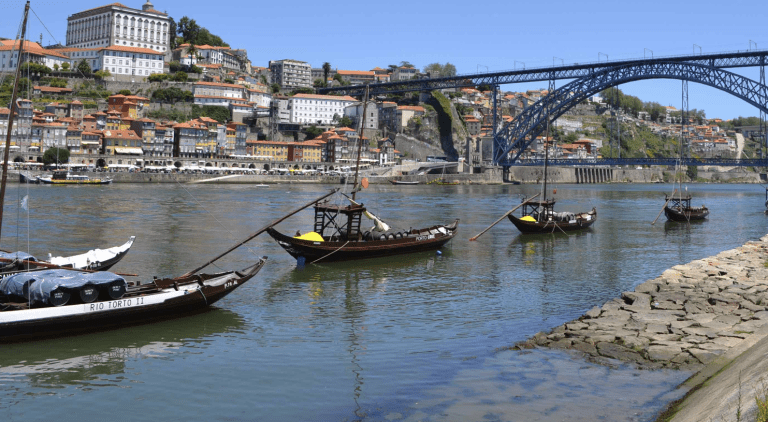A common query when planning a journey to Portugal is whether English is spoken in the country. To ensure a smooth and successful trip, it is essential to understand the language proficiency in Portugal before arriving. In this blog post, we will explore the prevalence of English proficiency across various regions in Portugal and provide valuable insights into how you can navigate language barriers while traveling or living there.
From urban centers and tourist hotspots where English is widely spoken, to rural areas where fluency may be less common but help is still available – we’ve got you covered. Additionally, we’ll discuss the importance of learning Portuguese when residing in the country long-term and share tips on mastering basic phrases to earn respect from locals.
By understanding these aspects of language use in Portugal, your journey will not only be more enjoyable but also culturally enriching. So let’s dive deeper into answering the question: do they speak English in Portugal?
English Proficiency in Portugal
Portugal stands out among other nations where English is not the native language, with a high level of proficiency in the language – particularly amongst those aged 50 or under.
According to EF Education First, Portugal is ninth on their “English Proficiency Index,” demonstrating the country’s commitment to learning the language.
- Youth: Mandatory language education starting from primary school has exposed younger generations to English, resulting in strong communication skills.
- Tourism industry: Locals working in the tourism industry have developed strong communication skills to cater to international visitors.
- Multinational companies: Professionals often need fluency or near-fluency levels when interacting with colleagues from other countries.
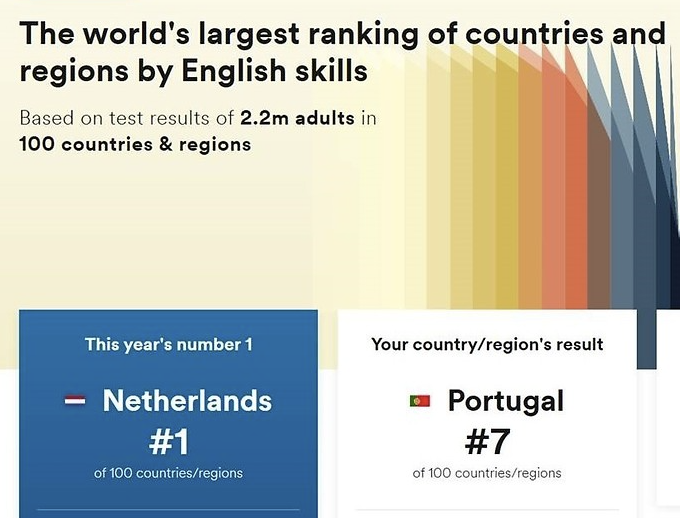
For those who are not fluent in English, the Algarve region and other European countries may require a proficiency level of Portuguese to navigate effectively; however, many locals possess multilingual abilities which can be utilized for communication. No need to fret if you don’t know English, as lots of Portuguese natives are multilingual and can converse in various tongues – including the language of Portugal with English captions.
English Widely Spoken in Portugal’s Urban Centers and Tourist Destinations
Planning a trip to Portugal but don’t speak the language? No worries, as English is widely spoken in popular areas such as Lisbon, Porto, and the Algarve region.
Easy Communication with Locals
Portuguese schools prioritize foreign language education, resulting in younger generations becoming fluent in English, making it easy to communicate with locals and navigate public services.
Bilingual Menus at Restaurants & Cafes
Most restaurants offer bilingual menus, so you can enjoy traditional dishes like pasteis de nata without any language barriers.
English-Language Entertainment Options
Cinemas screen movies with Portuguese subtitles, and bars and clubs host live music events featuring international artists singing primarily in English.
Don’t let the language barrier stop you from experiencing Portugal’s vibrant culture and stunning landscapes.
Online Resources and Phone Services for English-Speaking Tourists in Portugal
Traveling to Portugal but don’t speak the language? No problem.
VisitPortugal offers comprehensive information about local attractions, accommodations, and transportation options in English.
The Portugal Travel Guide app by Triposo provides recommendations on where to eat, sleep, and visit during your stay while also offering offline maps and directions.
Comboios de Portugal (CP) allows users to search train schedules, prices, and book tickets in English.
Need assistance during your stay? The Tourist Support Line and National Health Service Helpline offer support in multiple languages, including English.
With these resources at your fingertips, you can enjoy a smoother experience exploring all that Portugal has to offer.
Rural Regions: Fewer English Speakers, But Locals Are Helpful
While rural regions in Portugal may have fewer fluent English speakers, locals are often eager to practice their language skills with foreigners, making communication less challenging.
Assistance from Locals Willing to Practice Their Skills
Residents in rural areas may not be fluent in English, yet many are eager to practice and will offer assistance if needed. Engage in conversation exchanges with locals to improve your language abilities while helping others do the same.
Language Barriers Easier Than Expected Due to Helpful Residents
Despite potential language barriers, navigating rural areas is often easy thanks to the kindness and willingness of local residents. Non-verbal communication such as gestures or facial expressions can also help. If all else fails, use Google Translate app.
- Tips for Overcoming Language Barriers:
- Carry a pocket-sized Portuguese phrasebook.
- Download offline translation apps like Google Translate or Microsoft Translator.
- Utilize visual cues such as facial expressions, gestures, and postures to communicate.
- Be patient and understanding when communicating with locals.
In conclusion, while rural regions in Portugal may present more of a challenge when it comes to finding fluent English speakers, you can still communicate effectively thanks to the helpfulness of local residents. By making an effort to learn some basic Portuguese phrases and utilizing available resources, you can enhance your experience while traveling through these beautiful areas.
Why Learning Portuguese is Essential When Living in Portugal
Living in Portugal without knowing the Portuguese language is possible, but it’s highly recommended to learn it to enhance your social life, understand local customs, and make day-to-day tasks easier.
Improving Your Quality of Life
Learning Portuguese can help you socialize better, immerse yourself in the culture, and increase your job prospects.
- Socializing: Speaking Portuguese helps you form deeper relationships with locals who may not be comfortable speaking English.
- Cultural immersion: Understanding the nuances of the language is essential when trying to immerse yourself in a new culture.
- Better job prospects: Many employers prefer bilingual candidates, demonstrating adaptability and eagerness to learn new skills.
Gaining a Deeper Understanding of Culture and Customs
Learning Portuguese helps you appreciate traditional music, literature, and films, understand local news broadcasts, and participate in conversations involving regional dialects or colloquialisms unique to specific areas throughout Portugal.
- Appreciate traditional Portuguese music, literature, and films without relying on subtitles or translations.
- Understand local news broadcasts and stay informed about current events happening within your community.
- Participate in conversations that involve regional dialects or colloquialisms unique to specific areas throughout Portugal.
While English is widely spoken in Portugal’s urban centers and tourist destinations, learning the local language will undoubtedly enrich your experience during your time there. So why not start today by exploring some online resources dedicated specifically towards helping foreigners master this beautiful Romance language, such as Duolingo, Memrise, or even enrolling yourself into a local language school once settled down properly after arrival.
Mastering Basic Portuguese Phrases: A Key to Earning Respect from Locals
Learning the local language, even just a few phrases, shows your commitment to integrating into the community and earns you respect from your neighbors.
Effort and Commitment: The Foundation of Positive Relationships
Although English is widely spoken in Portugal, making an effort to learn Portuguese demonstrates your interest in the culture and customs of the locals.
Start with the Basics
Begin by learning common greetings and expressions of gratitude, such as “OlaÃŒ” (Hello) and “Obrigado/a” (Thank you).
Practice Makes Perfect
Practice your newfound skills by striking up conversations with locals, joining language exchange groups, and attending cultural events.
Resources for Learning Portuguese
A multitude of methods exist to facilitate the acquisition of Portuguese, ranging from mobile apps like Duolingo to online classes on sites such as Coursera.
FAQs in Relation to Do They Speak English in Portugal
Is English widely spoken in Portugal?
Yes, English is widely spoken in Portugal, especially in urban centers and tourist destinations.
A majority of the Portuguese population can communicate effectively in English, making it easier for tourists to navigate and interact with locals.
What percent of Portugal speaks English?
About 43% of the Portuguese population speaks English as a second language.
According to the English Proficiency Index, Portugal ranks 12th out of 100 countries worldwide for their proficiency in speaking English.
Can I live in Portugal as an English speaker?
Absolutely. Many expats and digital nomads live comfortably in Portugal as primarily English speakers.
However, learning some basic Portuguese phrases will enhance your experience by allowing you to better understand local culture and customs while earning respect from community members.
Which part of Portugal speak English?
In general, larger cities like Lisbon and Porto have more fluent speakers due to tourism influence.
The Algarve region, a popular destination among British vacationers, also has many residents who speak excellent English.
Conclusion
Is English spoken in Portugal? Yes, it is! Portugal ranks high in global English proficiency, so communicating with locals and reading bilingual menus in urban centers and tourist destinations is a breeze.
Online resources and phone services are also available to assist tourists, but if you plan on living in rural regions, you may encounter fewer fluent speakers. However, locals are often willing to practice their language skills with visitors, making language barriers easier to overcome.

